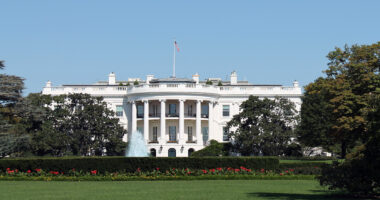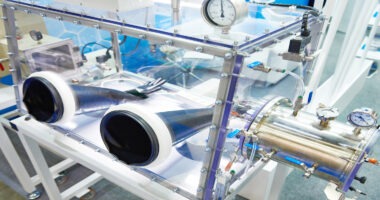A Combined Mylan and Perrigo: The Implications of Mylan’s $29 Billion Proposal
Mylan’s $28.9 billion proposal to acquire Perrigo would create a company with a focus on specialty brands, generics, over-the-counter, and nutritional products with approximately $15.3 billion in 2014 combined pro forma sales. DCAT Value Chain Insights examines the product and manufacturing positions of a combined company.
Mylan’s move to acquire Perrigo is the latest high-value deal in the global specialty/generics market with Actavis’ recently closed acquisition of Allergan for approximately $70.5 billion the latest. Mylan’s non-binding proposal to acquire Perrigo, the first step under Irish Takeover rules required before making a formal bid for Dublin-headquartered Perrigo, follows Mylan’s acquisition of Abbott’s non-US developed markets specialty and branded generics business. So what do these deals represent for Mylan and what would a combined Mylan and Perrigo represent for the global specialty/generics market? DCAT Value Chain Insights examines the implications.
A look at the deal
Mylan N.V. made a proposal to acquire Perrigo Company plc in a cash-and-stock transaction in a deal valued at approximately $28.9 billion. Under the terms of the non-binding proposal, which was delivered to Perrigo’s chairman on April 6, 2015, Perrigo shareholders would receive $205 in a combination of cash and Mylan stock for each Perrigo share, which represents a greater than 25% premium to the Perrigo trading price as of the close of business on Friday, April 3, 2015 (the last trading date prior to the date of Mylan’s proposal), a greater than 29% premium to Perrigo’s sixty-day average share price, and a greater than 28% premium to Perrigo’s ninety-day average share price.
Mylan’s Executive Chairman Robert J. Coury commented in a company statement: “This proposal is the culmination of a number of prior discussions between Mylan and Perrigo about the compelling strategic and financial logic of this combination. This combination would result in meaningful immediate and long-term value creation, and our proposal is designed to deliver that value to shareholders and other stakeholders of both companies. We have great respect for Perrigo’s board and management team and what they have built. We look forward in the weeks ahead to working with them to capitalize on this tremendous opportunity and working together to create a unique leader with a one-of-a-kind profile in our industry.” The combined company would have a focus in in specialty brands, generics, over-the-counter (OTC), and nutritional products with approximately $15.3 billion in combined 2014 pro forma sales.
Perrigo is headquartered in Dublin, Ireland, and Mylan’s proposal is subject to Irish Takeover rules and is not a firm offer, but a non-binding proposal to acquire Perrigo. Mylan’s proposal is subject to the pre-condition of confirmatory due diligence, which pre-condition may be waived by Mylan at its discretion. “The announcement is not an announcement of a firm intention to make an offer under rule 2.5 of the Irish Takeover Panel Act, 1997, Takeover Rules 2013 and there can be no certainty that an offer will be made, even if the due diligence pre-condition is satisfied or waived,” said Mylan in a statement. “A further statement will be made if and when appropriate.”
In making its proposal to acquire Perrigo, Mylan also outlined its recommendation for the executive management of the combined company. Mylan suggested that the combined company be lead by co-chairmans, Robert J. Coury, currently executive chairman of Mylan, and Joseph C. Papa, now president, chief executive officer, and chairman of Perrigo. It also suggested that Mylan CEO Heather Bresch continue in the role as well as Mylan President Rajiv Malik. In a letter to Papa from Coury, Mylan also highlighted current Perrigo members to the senior management team of a combined company. “Our Board also has great respect for your senior management team, and we envision the combined company leveraging the best of our collective management and employee talent,” said Coury in his letter to Papa. “To that end, we are hopeful that, among others at Perrigo, Judy Brown [executive vice president and chief financial officer] and Todd Kingma [executive vice president, general counsel and secretary] would be willing to serve in important roles with the combined company. We also envision important roles in the combined company for members of Marc Coucke’s [founder of Omega Pharma] Omega Pharma management team. We look forward to exploring with you other ways of maximizing the benefits to our shareholders and other stakeholders presented by combining these two very strong management teams.”
In a statement, Perrigo acknowledged receipt of Mylan’s proposal, but did not comment further. “Perrigo confirms that it has received an unsolicited, indicative proposal from Mylan regarding a possible offer for the company,” said the company in a statement. The board of Perrigo will meet to discuss the proposal and a further announcement will be made when appropriate. There can be no certainty that any offer will be made.
Other recent acquisitions by Mylan
The move to acquire Perrigo follows Mylan's recently closed acquisition under which it acquired Abbott's non-U.S. developed markets specialty and branded generics businesses. With that deal, Mylan N.V became the new company with corporate headquarters in Amsterdam, the Netherlands, and principal executive offices in Potters Bar, United Kingdom with global centers of excellence in the US, Europe, and India. With the Abbott acquisition, Mylan gained more than 100 specialty and branded generic pharmaceutical products in five major therapeutic areas, which included several patent protected, novel and/or hard-to-manufacture products, according to Mylan's 2014 annual filing. The company also expanded and strengthened its product portfolio in Europe, Japan, Canada, Australia, and New Zealand. As a result of the transaction, Mylan shareholders own approximately 78% of Mylan N.V. and Abbott's affiliates own approximately 22%. In April 2015, Abbott announced that it is selling approximately one-third of its stake in Mylan. In addition to the Abbott acquisition, other recent acquisitions by Mylan include Agila Specialties, Merck KGaA's generics and specialty pharmaceutical business, Bioniche Pharma, Pfizer's respiratory delivery platform, and Matrix Laboratories in 2007 (which was later renamed Mylan India).
Mylan's product positions
In 2014, Mylan posted revenues of $7.72 billion, up 12% year over year. Currently, Mylan markets a global portfolio of approximately 1,400 different products covering multiple therapeutic categories in a range of dosage forms and delivery systems, including oral solids, topicals, liquids and semi-solids, according to the company's 2014 annual filing. The company typically focuses on those products that are difficult to formulate and manufacture and that have longer life cycles than traditional generic pharmaceuticals, including transdermal patches, high-potency formulations, injectables, controlled-release and respiratory products. In addition, the company provides antiviral therapies. It also manufacturers active pharmaceutical ingredients (APIs) for its own products as well as provide third-party API manufacturing services.
Mylan operates in two main segments, generics and specialty, with its revenues derived primarily from the sale of generic and branded generic pharmaceuticals, specialty pharmaceuticals, and APIs. In 2014, its generics business accounted for $6.46 billion and its specialty products for $1.19 billion in revenues. Its generic pharmaceutical business is conducted primarily in the US, Canada, Europe, India, Australia, Japan, New Zealand, and Brazil as well as through export activity into emerging markets (i.e, rest of world (ROW)). Its API business is conducted through Mylan India, which is included within the ROW in its generics segment. Its specialty pharmaceutical business is conducted by Mylan Specialty L.P.
Generics, particularly the US generics market, is an important market for Mylan. The company estimates that one in every 13 prescriptions dispensed in the US is a Mylan products. Its sales in the US are primarily from the sale of oral solid dosage, injectable and transdermal products, and unit dose offerings. In the US, its generic portfolio (as of year-end 2014) consisted of approximately 360 products, of which approximately 270 are in capsule or tablet form, in an aggregate of approximately 815 dosage strengths. Included in these totals are approximately 45 extended-release products in a total of approximately 105 dosage strengths. The company also manufactures and sells injectable products across several key therapeutic areas, including antineoplastics, anti-infectives, anesthesia/pain management, and cardiovascular. As of year-end 2014, it had 125 injectable products (branded and generic) in a total of approximately 175 dosage strengths. As of December 31, 2014, the company had approximately 120 injectable products that had been filed and are pending abbreviated new drug application (ANDA) approval for the US market. Mylan's injectable manufacturing capabilities include vials, pre-filled syringes, ampoules, and lyophilization with a focus on antineoplastics, penems, penicillins, ophthalmics, and peptides. In Canada, the company has approximately 170 products in an aggregate of approximately 375 dosage forms. The company's unit dose business focuses on products with innovative packaging and barcoding that supports bedside verification throughout the US and Canada for hospitals, group purchasing organizations, long-term care facilities, wholesalers, surgical services, home-infusion service providers, correctional facilities, specialty pharmacies, and retail outlets. In addition to the products it packages in the US, it also markets approximately 60 generic products in a total of approximately 80 dosage strengths under supply and distribution agreements with wholesalers. Also included in its US product portfolio are five transdermal patch products in a total of 25 dosage strengths, including a fentanyl transdermal system, a narcotic transdermal product.
In Europe, the company operates in 22 countries. In Japan, beginning in 2013, Mylan established an exclusive long-term strategic collaboration with Pfizer Japan to develop, manufacture, distribute, and market generic drugs in Japan. Under the agreement, both parties operate separate legal entities in Japan and collaborate on current and future generic products, sharing the costs and profits resulting from such collaboration. Mylan's responsibilities in Japan primarily consist of managing operations, including R&D and manufacturing. Pfizer Japan's responsibilities primarily consist of the commercialization of the combined generics portfolio and managing a combined marketing and sales effort. In Japan, together with Pfizer Japan, the company offers a broad portfolio of more than 290 products in an aggregate of approximately 450 dosage strengths. It also has a manufacturing and packaging facility located in Japan, which is key to supplying its collaboration with Pfizer in Japan.
In some key emerging markets, Mylan began commercial operations in Brazil in the fourth quarter of 2013 through its acquisition of Agila. In Brazil, Mylan operates both a manufacturing platform and a commercial business focused on providing generic injectable products to the Brazilian hospital segment with a goal of further enlarging its participation in the Brazilian market.
Mylan's specialty pharmaceutical business is conducted through Mylan Specialty, which competes primarily in the respiratory and severe allergy markets. Mylan Specialty's portfolio consists primarily of branded specialty injectable and nebulized products. A significant portion of Mylan Specialty's revenues are derived through the sale of the EpiPen Auto-Injector, which during 2014, became the first Mylan product to reach $1 billion in annual net sales. The EpiPen Auto-Injector, which is used in the treatment of severe allergic reactions, is an epinephrine auto-injector that has been sold in the US and internationally since the mid-1980s. Mylan Specialty has worldwide rights to the epinephrine auto-injector, which is supplied to Mylan Specialty by a wholly owned subsidiary of Pfizer.
Another key product in its specialty segment is Perforomist Inhalation Solution, Mylan Specialty's formoterol fumarate inhalation solution, was launched in October 2007. It is a long-acting beta2-adrenergic agonist indicated for long-term, twice-daily administration in the maintenance treatment of bronchoconstriction in chronic obstructive pulmonary disorder, including those with chronic bronchitis and emphysema. In addition to EpiPenAuto-Injector and Perforomist inhalation solution, Mylan Specialty also markets Ultiva, which is an analgesic agent used during the induction and maintenance of general anesthesia for inpatient and outpatient procedures and is generally administered by an infusion device.
Mylan's manufacturing and R&D operations
On a manufacturing basis as of year-end 2014, Mylan had six production, distribution, and warehousing facilities in the US and Puerto Rico, including significant production and distribution sites in Morgantown, West Virginia; St. Albans, Vermont; Caguas, Puerto Rico; and Greensboro, North Carolina. Outside the US and Puerto Rico, the company owns production, distribution, and warehousing facilities in nine countries, including key facilities in India, Australia, Japan, Ireland, Brazil, Hungary, Poland, and France. As a result of its recent deal with Abbott, the company gained two manufacturing facilities in Chatillon, France and Katsuyama, Japan. Mylan India (which includes company's contract manufacturing activities) has nine API and intermediate manufacturing facilities, four finished dose form (FDF) facilities, and eight injectable facilities in India of which eight of the API facilities, two FDF facilities, and four injectable facilities have been successfully inspected by the US Food and Drug Administration, according to the company’s annual filing.
Mylan also leases warehousing, distribution, and administrative facilities in numerous locations, within and outside of the US, including properties in New York, France, India, Ireland, and the United Kingdom. All of the production, distribution and warehousing facilities are included within the company's generics segment; however, certain locations also support its specialty segment. On a R&D basis, its global R&D centers of excellence are located in Morgantown, West Virginia and Hyderabad, India. It also has specific R&D technology centers of excellence in Ireland, India, the UK, and Japan. As a result of the recent deal with Abbott, Mylan is corporately headquartered in in Amsterdam, the Netherlands, and its principal executive offices are located in Potters Bar, UK with the global centers of excellence in the US, Europe, and India.
A look at Perrigo
In seeking to acquire Perrigo, Mylan would gain a large product portfolio and revenue base in OTC products. Perrigo develops, manufactures, and markets OTC and generic prescription pharmaceuticals, nutritional products, and APIs ingredients and has a specialty sciences business comprised of assets focused predominantly on the treatment of multiple sclerosis (Tysabri (natalizumab)), from which it receives royalties on in-market sales from Biogen as part of Perrigo's $9.5 billion acquisition of Elan in 2013. In fiscal year 2014 (ending June 28, 2014), Perrigo reported revenues of $4.06 billion, with OTC products comprising more than half of the company's revenues at $2.22 billion, generic prescription products at $927 million, and nutritionals at $552 million. Revenues from APIs constitute $138 million, specialty science ($147 million), and other revenue ($79 million).
Perrigo estimates that it is the largest store brand manufacturer of OTC pharmaceutical products, according to the company's 2014 annual filing. Major product categories include analgesics, cough/cold/allergy/sinus, gastrointestinal, smoking cessation, and animal health; secondary product categories include feminine hygiene, diabetes care, and dermatological care. The consumer healthcare segment currently markets over 2,800 store brand products, with over 11,000 stock-keeping units to over 1,100 customers. The company considers every different combination of size, flavor, strength and dosage form (e.g., tablet, liquid, softgel, etc.) of a given item as a separate “product.”
In terms of recent acquisitions, in March 2015, Perrigo completed the acquisition of Belgian-based Omega Pharma Invest N.V. in a cash and equity transaction valued at approximately EUR 3.8 billion ($4.0 billion), which included the assumption of EUR 1.3 billion ($1.4 billion) in debt, which further enhanced Perrigo's position in the OTC market, particularly the European OTC market. Omega generated approximately EUR 1.27 billion ($1.34 billion) in annual revenue. Perrigo also made smaller acquisitions in 2014. It acquired a portfolio of women’s healthcare products from Lumara Health, Inc., a privately held, Chesterfield, Missouri-based specialty pharmaceutical company, for $82 million in cash. The acquired portfolio generated more than $15 million in net revenues during the twelve months ended March 31, 2014. Also, in 2014, the company acquired a basket of value-brand OTC products sold in Australia and New Zealand from Aspen Global for $53.7 million in cash to broaden the company's OTC position in Australia and New Zealand.
Perrigo's primary manufacturing facilities are located in the US and Israel. The company also has secondary manufacturing facilities located in the UK, Mexico, Australia and India, along with a joint venture located in China. The company supplements its production capabilities with the purchase of some product from outside sources. The company also has logistics facilities in the US, Israel, the UK, Mexico, and Australia.




